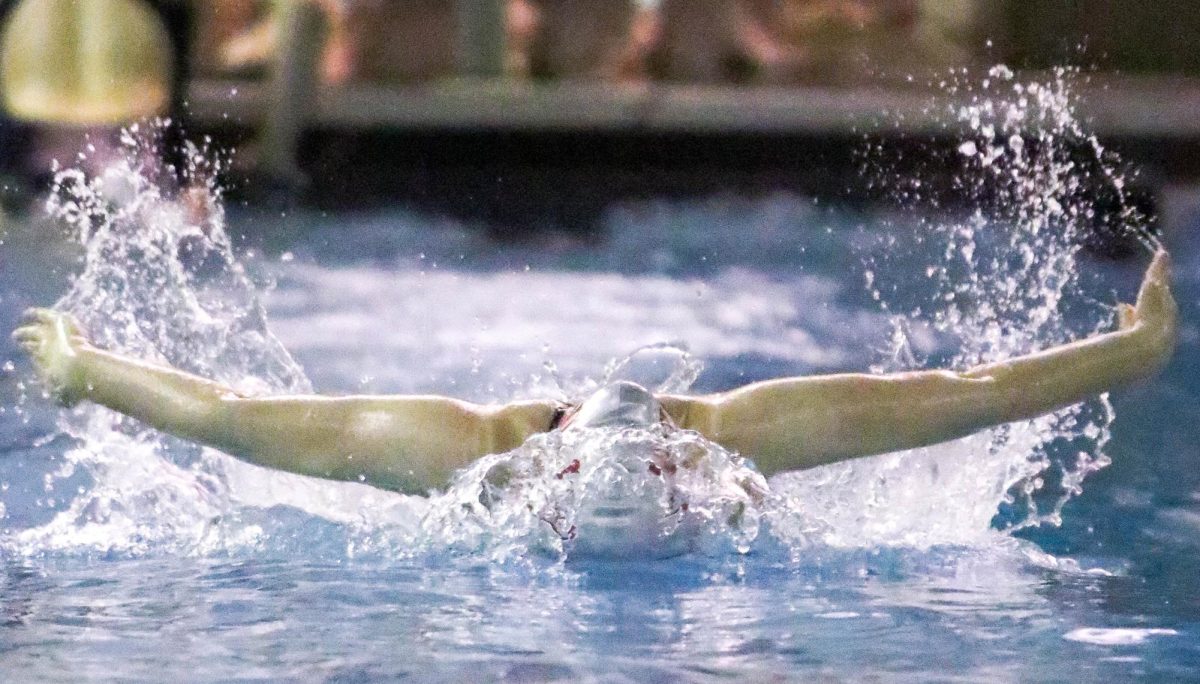Years in the Making
A deep dive into graduation traditions
April 20, 2023
Walking across the graduation stage is a moment that all high school students can look forward to. Along with receiving a diploma, the festivities that accompany high school graduation are designed to reward and recognize students for their four years of dedication. There are many traditions that accompany this celebratory day that have fascinating origins and, in some cases, date back hundreds of years.
The graduation ceremony itself has been a custom for nearly 600 years. Jostens representative Rick White describes the birth of the graduation ceremony.
“The ceremony itself dates back to England’s Oxford University in 1432,” White said. “The make up of the graduation is a lot more diverse than what it used to be, but it still consists of pretty much the way it was originally.”
The iconic cap and gown has also been a graduation staple for centuries.
“The outfits actually, like judicial robes, … derived from the churches,” White said. “The custom of wearing the distinctive garments was followed by the bishops and their vice chancellors as they became heads of universities.”
However, it was not until the late 1800s that the cap and gown became popular in the United States.
“The custom of the caps and gowns grew rapidly in the United States after Harvard [University] used the regalia to celebrate its 250th year anniversary in 1886,” White said. “That’s when high schools began wearing the caps and gowns to celebrate graduations in the early 1900s.”
Another long-standing graduation tradition is the baccalaureate service. Seniors and their families have the option to attend the baccalaureate service in the week leading up to graduation. John Herring, pastor of Refuge Church, helps orchestrate the event at Nixa.
“It is a time of celebration,” Herring said. “… For seniors, especially [those] with a faith background, it’s a time to celebrate and worship the Lord during the time of transition…”
The service includes a time of worship and a guest speaker. This year, the event will be held at the Aetos Center for the Performing Arts.
“Usually there’s songs that are sung–there’s also a speaker,” Herring said. “Sometimes, for some baccalaureates, that’s a preacher or someone else like that. But at Nixa, … we usually do not have a preacher speak. We have a speaker come in who the seniors may know–maybe a connection in the community…”
The baccalaureate service has been a part of high school graduation commencements for centuries.
“I know it dates back hundreds of years, and even more of a global type setting,” Herring said. “I think in the 1400s is when it started. In some scenarios it was the graduation service, and in other scenarios, it was celebrated in conjunction with as … a way to … emphasize the value of faith and be challenged forward into a new chapter of life.”
The baccalaureate service has many religious elements, but it is open to all students regardless of their religious background.
“There will be some songs sung that would be of a religious nature, but the speaker would speak some life truths that could challenge both those of faith and those who may not be of faith to move forward,” Herring said.
Herring said the baccalaureate service is well attended, and that traditionally, about a third of the senior class attends the event.
After the ceremony is over, graduates have the opportunity to participate in project graduation, an event that is sponsored by parents and not associated with the school itself. Historically, graduation night can be a time when teenagers engage in dangerous and unregulated parties. Project graduation originated to prevent this problem by providing graduates with a safe space to celebrate after the ceremony is over. Project graduation has been available to Nixa graduates since as far back as 2006. Heather Billmyer leads the organization at Nixa.
“The purpose of project graduation is to plan a safe event for all graduating students to attend after graduation to keep them off the streets and keep them safe from drinking and drugs,” Billmyer said. “It is also a celebration of all the students to be together one last time as a class.”
Even though seniors may be eager to move on to the next chapter, White emphasizes the importance of soaking up the graduation festivities.
“Personally, I think graduation should be the most important day of the school year because … you’ve been working on this thing for 13 years,” White said.






